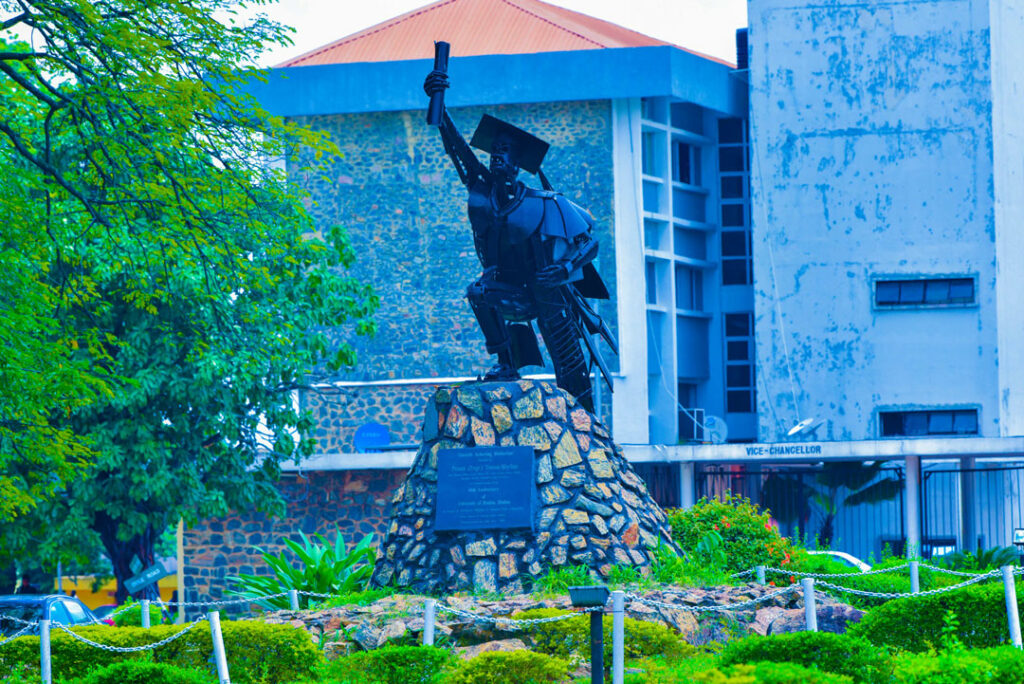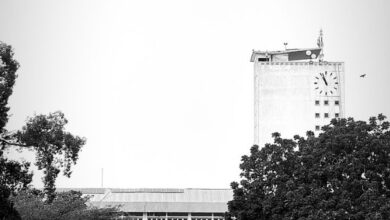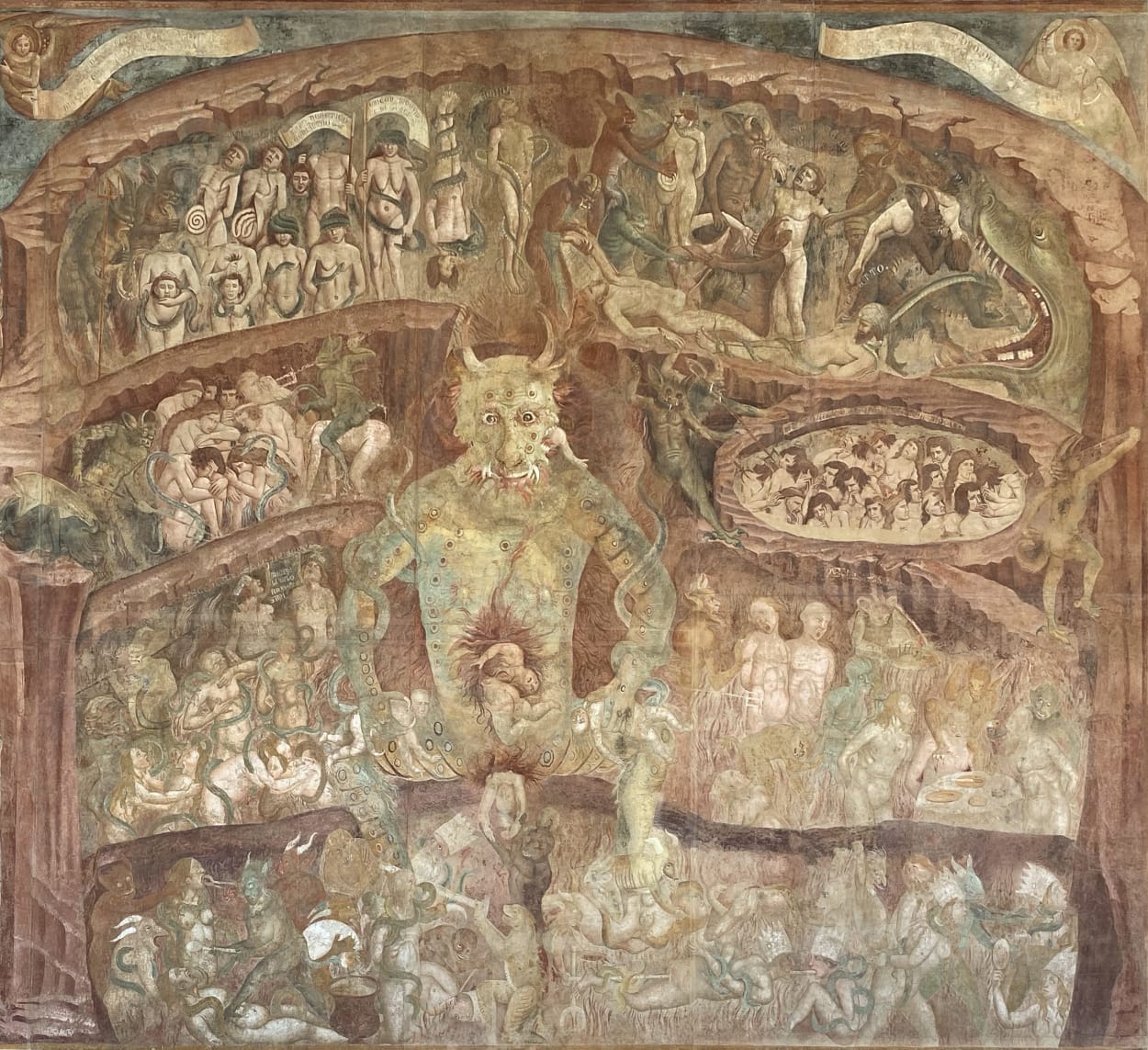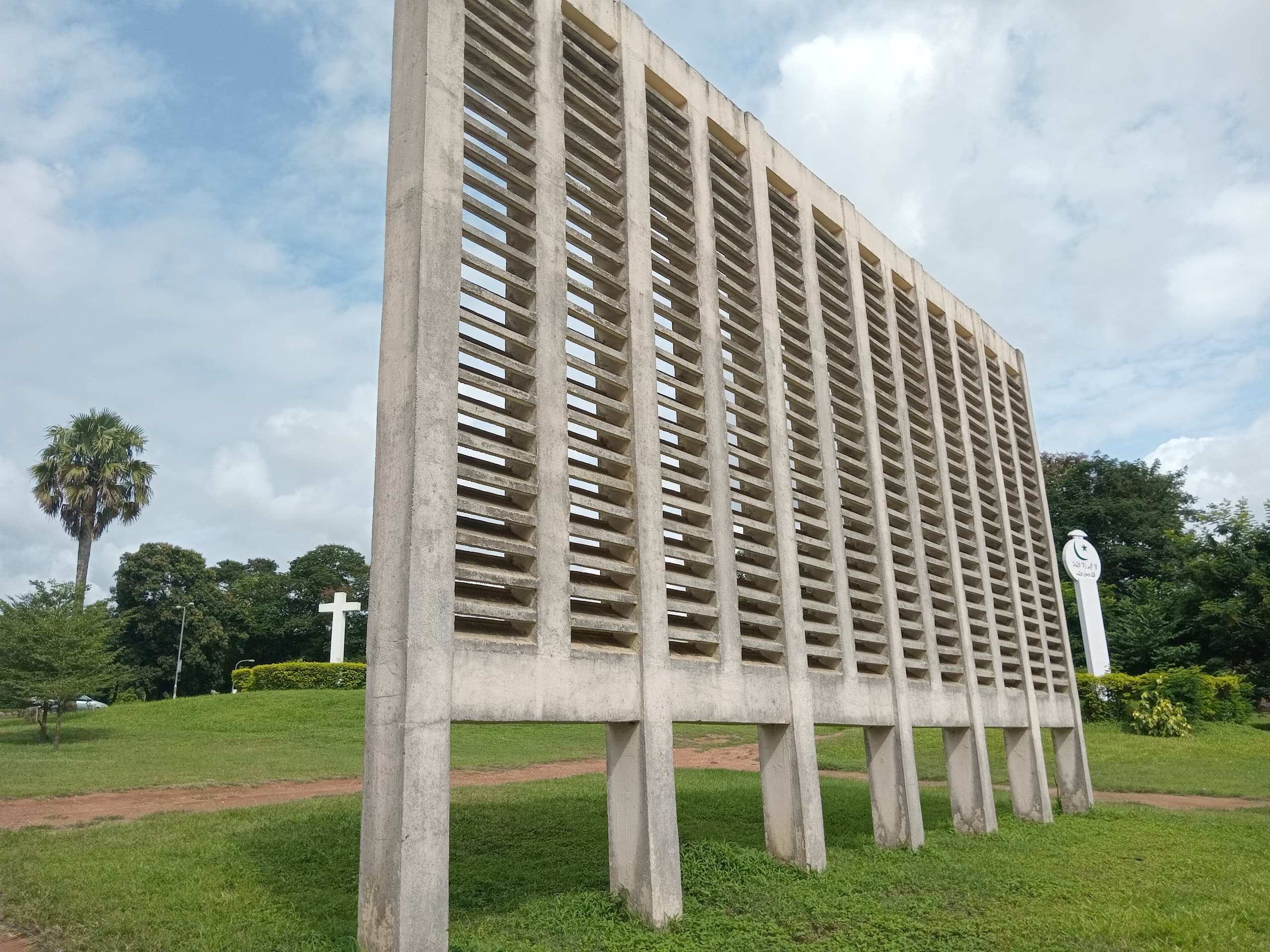NELFUND is Anti-Student. It Must be Discarded.

“NELFUND is anti-student, and it should be discarded. If students cannot be guaranteed that they will be able to get a decent-paying job to pay back, this will be a future burden to students. Also, it is not even available to all students, so yes, it is completely anti-student,” then Student Union President aspirant, Odedele Covenant, waxed lyrical at the February 19th 2025 UI’SU Press Night. His opponent, Oluwole Ayomide, was equally emotive. “For me as a candidate, NELFUND is not an alternative for the FG not funding education.” Yet we find ourselves in this position, a mere three months later, with the office of the University of Ibadan SU President used to funnel updates on how to workaround, however fruitlessly, the abusive NELFUND scheme that Nigerian students have been lassoed into.
The Nigerian Education Loan Fund (NELFUND) was kicked against vehemently before its implementation. Maligned by crusaders such as the current UI’SU President as frankly anti-student, it was made clear that in a country where a disproportionate amount of young people already struggle with crippling debt from predatory loan apps, encouraging these people to pay exorbitant amounts for tertiary education through another loan scheme was asking for trouble—especially given the soaring unemployment and underemployment rates, insufficient guarantees that these newly graduated young people will ever truly be able to rid themselves of debt accumulated in University.
On the surface, Nigeria’s 5.3% unemployment rate, as quoted by the Nigerian Economic Summit Group in the first quarter of 2024, is a picture of success. However, the underlying criteria tell a different story. This stark decrease from 2020’s 33% unemployment rate lies only in the alteration of criteria defining employment by the National Bureau of Statistics from an engagement in 20 hours of paid activities weekly to a mere hour. However, other statistics available fail to mask our predicament, with a misery index of 36.9%, this metric capturing unemployment and inflation rates, marking us out as a nation in financial crisis, exacerbated by food scarcity and price instability. In addition, with the formal sector only accounting for 7.3% of employment opportunities, a vast majority of Nigerians are sequestered in the informal sector in vulnerable employment characterised by poor working conditions, reduced job security, low-paying jobs and wholly non-paid jobs, 84% of our ‘gainfully employed’ identified as unpaid, working only for a roof over their heads and food in their bellies, a reality not so dissimilar to slavery. This is the Nigeria where fresh graduates are to cough up millions in debt accumulated while in University, with the sum of fees paid by students of the University of Ibadan now hovering about N300,000, depending on specifics such as course and level of study. But by dismissing all this with the oft-quoted Nigerianism, “If it worked in the US, it would work here,” those at the helm of affairs have neglected the vastly different realities in these countries, once again importing solutions that have no practicality in the world’s poverty capital.
Yet, the situation would not be so dire if the execution weren’t even worse than the idea. The design of NELFUND, if borne from dim ideas, becomes more calamitous in practice, beset by a myriad of challenges. Conceived as a ‘beacon of hope for Nigerian students pursuing higher education’, the Student Loan Initiative sets out to disburse yearly zero-interest loans to students of tertiary institutions, payable two years after NYSC. With relaxed eligibility criteria in the 2024 Student Loans Act compared to its 2023 iteration, the removal of the controversial requirements: N500,000 minimum annual family income threshold, high-profile guarantors and disqualification of children of previous loan defaulters, opened the scheme up to those who needed it most. 526,533 students applying, according to NELFUND’s latest figures, makes the end picture more worrisome.
These eventual remittances may be either deducted at a 10% rate from the individual’s salary, or at a 10% rate from monthly profit in the case of entrepreneurs. At a N70,000 minimum wage, a student of the University of Ibadan who collects a N1,200,000 loan across four years would require exactly 172 months, 14 years and some change, to repay this figure. And that too is in the event of that person gaining formal employment. With the formal sector accounting for only 7.3% of employment opportunities and over 70% of the working class in vulnerable employment, where exactly does this money come from? The youth are tottering towards the brink more than ever, with limited working opportunities even for the skilled graduates. However, rather than act towards job creation and strengthening the economy, we seek to saddle a generation of Nigerian youths with a difficult debt. And with no interest rates on these loans to hedge against inflation, it’s difficult even to gauge the long-term economic implications of the decision, and the feasibility of this scheme in a country as financially volatile as this.
Budgetary waste and frank corruption remain a massive problem in Nigeria, with large sums still siphoned out of our reserves yearly to finance politicians and the exclusive cadre of ‘national cake beneficiaries’. With health and education respectively earmarked at 5.18% and 7.3% in Nigeria’s 2025 budget, we look set to face continued strife in these underfunded public sectors. The education figure, significantly down from the 15-20% recommended by the Incheon declaration, ensures Nigeria remains light-years away from inclusive and equitable education for all, with not only our universities, but federal primary and secondary schools at risk of collapse. Chapter 2, Section 18 of the 1999 constitution is nought but a long-forgotten maxim. The government shall ensure equal and adequate education opportunities. The government shall promote science and technology. The government shall strive to eradicate illiteracy and shall, to this end, provide free primary education, free secondary education, free tertiary education, and free adult literacy programmes—all fronts on which the Nigerian government has failed.
NELFUND is a product of the federal government’s neglect of its responsibility to fund education, a critical sector, and must be treated as such. With 2023 and 2024 seeing a widespread increase in fees across Nigerian tertiary institutions, as the Committee of Vice-Chancellors of Nigeria formed a unified front for increment of fees in response to insufficient funding by the federal government, protests have been a constant ever since, starting with the September 6th, 2023, UNILAG Fee Hike protests that saw three activists, Femi Adeyeye, Philip Olatinwo and Ayodele Aduwo, arrested. These same increments will spread to the University of Ibadan, first in the form of a N20,000 utility levy as well as studio and laboratory fees ahead of the 22/23 session, and subsequently, a startling increase to the current levels ahead of 23/24, with fees for the current 500L MB;BS class surging from N185,000 to N292,850, accommodation fees and Health Professional Training Levy inclusive. This 60% increment, a figure even starker in some other departments, will come to mark a turning point in the fee hike struggle, with Ibadan students, apprehensive since the 2023 Lagos Fee Hike, now acutely aware of their reality as students in Nigeria.
A trio of UI students still await a resolution following trial for their roles in the May 2024 protests against an increment that would see various student organisations including the central body, UI’SU take to social media to crowdfund fees on behalf of their members, yet, we are already biting of this NELFUND carrot dangled oh-so-disrespectfully before our snouts. The most recent fee hike protest in Nigerian universities remains the August 29th to 30th demonstrations in the University of Ibadan, which began spontaneously in Nnamdi Azikiwe Hall, culminating in a long-overdue call for a congress and a three-week suspension of the academic calendar. It was an expression of pure feeling, beginning with gyrations at the Zik cafeteria before sweeping through halls on the way to the Vice-Chancellor’s residence between 10 pm and 2 am the next day, growing in size and verve as the night wore on. And yet, the role of the student union in these demonstrations was not to inspire the students; in that respect, they were wholly uninvolved. They served purely to control that fire, to shout “koolu koolu temper”, and eventually, to manipulate a demand for reversal of the fee increase into a demand for an extension of the payment deadline, and to make all this palatable to students and management alike. Yes, there is a need for diplomacy in leadership, but to betray the trust of those you serve is another thing. Since this series of events, Nigerian students have been sedated, the drugged masses well and truly bereft of fight. NELFUND will somehow make this work, it has to. We have no choice than to hope against all hope. But is it time to recognise that our lives are still on the line?
The University of Ibadan Student Union’s most recent NELFUND Refund Update circular came in the aftermath of a damning injustice. A number of NELFUND applicants in the 2023/2024 session were forced to find other means to meet the University’s three-week deadline for fee payment due to the non-disbursement of funds by the regulatory body. Due to this late approval of student loans, some of these young people would have indeed had to take out high-interest loans from private financial institutions, incurring additional cost and liability in doing so. So for these students, it’d have been a shock to see their names on a list of NELFUND beneficiaries months later. Their school fees were paid out of pocket to meet a predatory deadline—so how then could they be listed as beneficiaries of the government, expected to repay these loans in the future that they knew nothing of.
Herein lies the conundrum. A History Press feature story revealed that a number of applicants in such situations have written letters requesting refunds of these loans, which they never actually benefited from, to avoid being saddled with debt going forward—and have had no luck with these applications. From people who have requested these refunds in writing five months ago, the Student Union asks for continued patience and assures us of their very real efforts in expediting the process, working underground of course, aluta continua. And we must ask, why does our Union take it upon herself to support a failed solution and continue to prop it up despite the challenges evident? Why does our union fail to realise that the fee hike crisis is still very real, only serving to kick the can down the road through their actions and inactions and passing on the struggle to future administrations like others have done before them? For how long will this can roll down the hill, and how much momentum will it garner before it is stopped—if it is ever stopped? And why does the SU choose to walk back on her initial ‘Till We Win’ modus operandi, accepting concessions at every turn, going from a very strong statement on the impracticality of NELFUND and the need for its scrapping to docile compliance?
To add to this, reports of corruption within the framework of NELFUND are of utmost concern. The Student Loan Scheme, merely a year into operations, is currently under investigation by the Independent Corrupt Practices and Other Related Offences Commission for discrepancies in the disbursement of funds. The anti-corruption outfit identified that of N203.8 billion made available to NELFUND by the Federation Allocation Account Committee, the Tertiary Education Trust Fund and crime proceeds obtained by the Economic and Financial Crimes Commission, N44.2 billion had been disbursed to students with N159.6 billion still unaccounted for, an allegation since denied by Akintunde Sawyerr, Managing Director of the Nigerian Education Loan Fund.
This follows an explosive report by The Guardian on schools charging a premium on their fees for students making payments through the student loan scheme. Students applying for institutional loans have these loans paid directly to their institutions on their behalf to avoid misuse of funds. However, 51 varsities have been identified as adding mysterious amounts to the initial fees of students, an amount that they will still be responsible for when making loan repayments. In the case of Obafemi Awolowo University, Ile-Ife, students with their school fees listed as N105,000 on their school portal were shown N125,000 on the NELFUND dashboard, the amount paid on their behalf to OAU. This indicates a N20,000 premium on their fees, which they will still be responsible for when making loan repayments post-NYSC. In the case of Nasarawa State University, the deception is even more sinister. N55,000 school fees morphed to a N120,000 disbursed amount on one student’s NELFUND portal, a staggering 118% tariff. How interest-free are these interest-free loans if, through illegal additions, students are strong-armed into paying significantly more than they bargained for when they opted into this arrangement?
And while the University of Ibadan has not been identified as making any such illegal deductions, it is still part of a number of institutions which, through the delay of disbursement of funds by the Federal Government’s loan scheme and the payment of fees through other means by students desperate to meet absolute deadlines, have had students burdened with financial liability. This issue of duplicate payment of institutional fees has led to disputes across a wide range of universities, with thousands of Nigerian students still affected. It is a necessity that this be rectified, and there must be more urgency from stakeholders, given that in Nigeria, money tends to vanish without trace.
One thing is for certain, though: these monies are with the universities, and these academic institutions cannot be allowed to drag their feet on matters such as this. Bureaucratic delays and corruption, typical of the Nigerian administrative process, appear to be forestalling resolution, and were these students to graduate without seeing to these issues, they’d be sure to bear the brunt of it as young professionals. NELFUND has, in the past, raised alarm over universities that failed entirely to inform students of loans disbursed on their behalf, demanding that these payments still be made, a critical breach of trust and violation of the Nigerian youth.
Corrupt Nigerian universities and corrupt Nigerian federal institutions. Who could have seen this coming? This morbidly predictable outcome only serves to confirm the speculation of commentators in the buildup to the implementation of the student loan scheme—while questionable in theory, it’s much too open to interference to even be remotely practicable within our institutional framework. The University of Ibadan’s latest circular signalled the closing of the fee payment portal on June 6th, a mere 7 weeks after it opened on April 14th. Following this deadline, any school fee payments would be met with a N20,000 late fee, an exorbitant excess for indigent students struggling to make payments on time. This same circular enjoined indigent students to apply for the National Education Loan Fund and make timely payments. Yet, some of these students are still visiting the University’s Information Technology and Media Services (ITeMS) hub to file complaints concerning the delayed approval of their loans.
With NANS in bed with NELFUND and the Federal Government, and even our ‘intellectual’ unionists in the more reputable universities choosing to support the scheme and not baulk at its implementation, Nigerian students are left with no true representation. Without Union leaders that honestly represent our interests in this perpetual struggle against the man, there is no future for education in this country—where not only the ‘poor’, but the ‘middle class’ struggle with school fee payments in Federal institutions of learning. The government, the vice-chancellors, and the union leaders are all having a jolly good time—because they have shirked their duty to protect the vulnerable students. Something must change.




